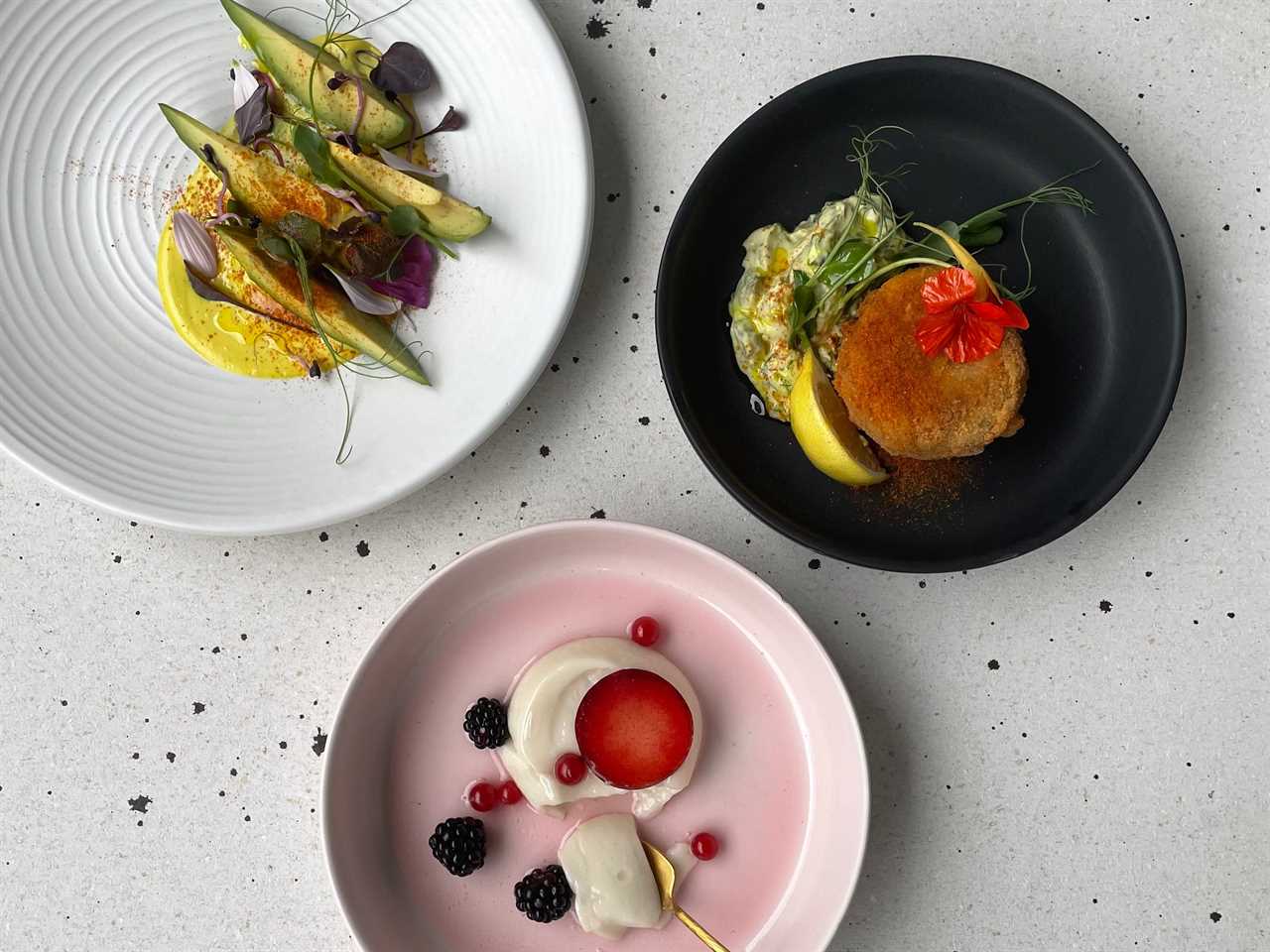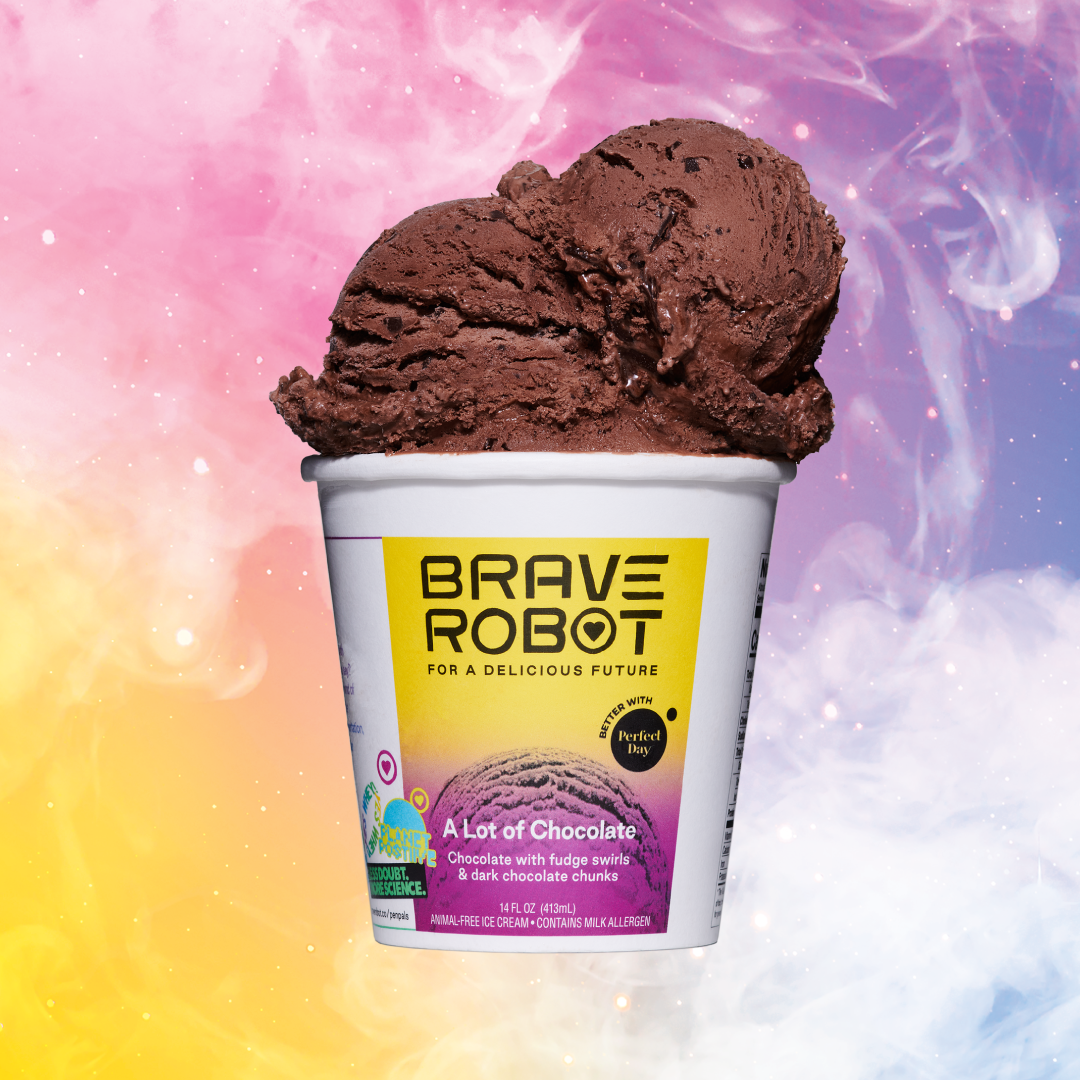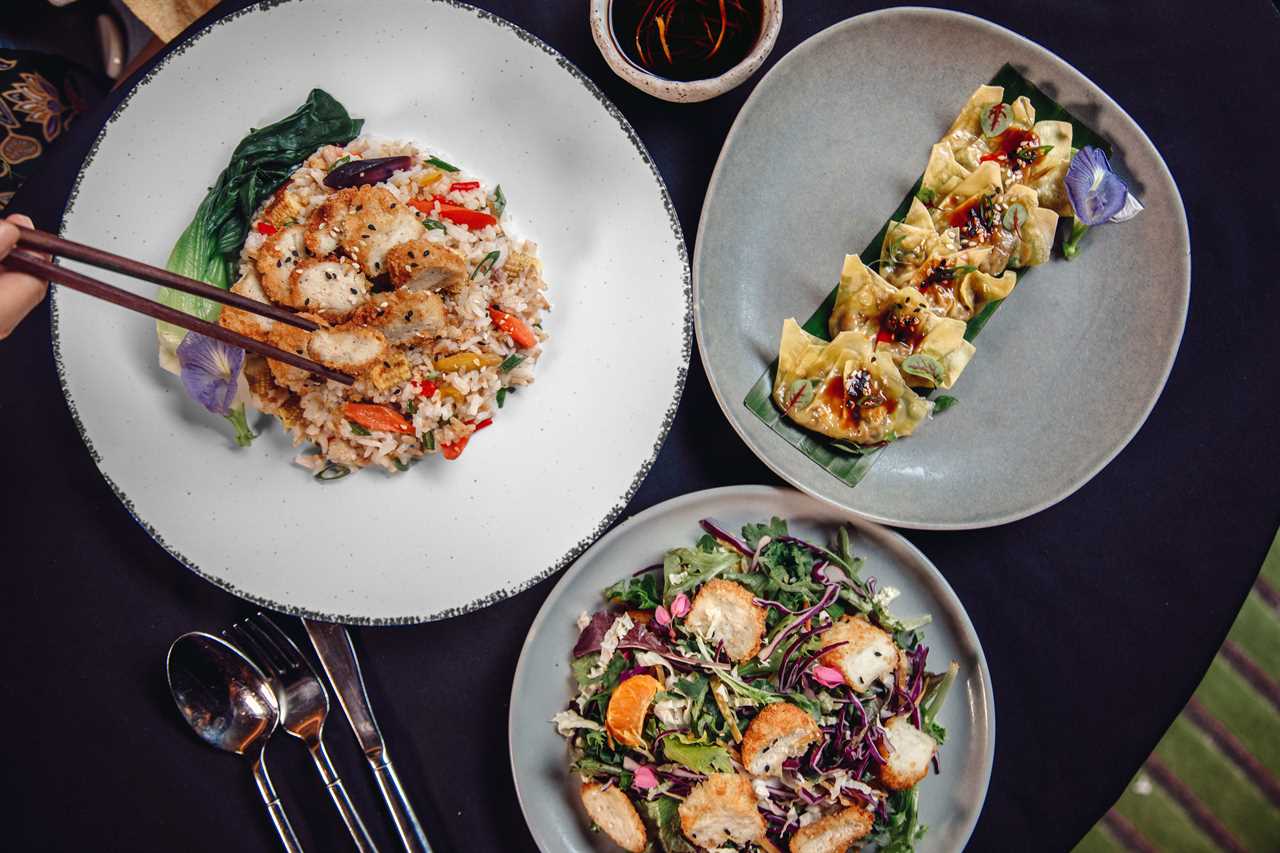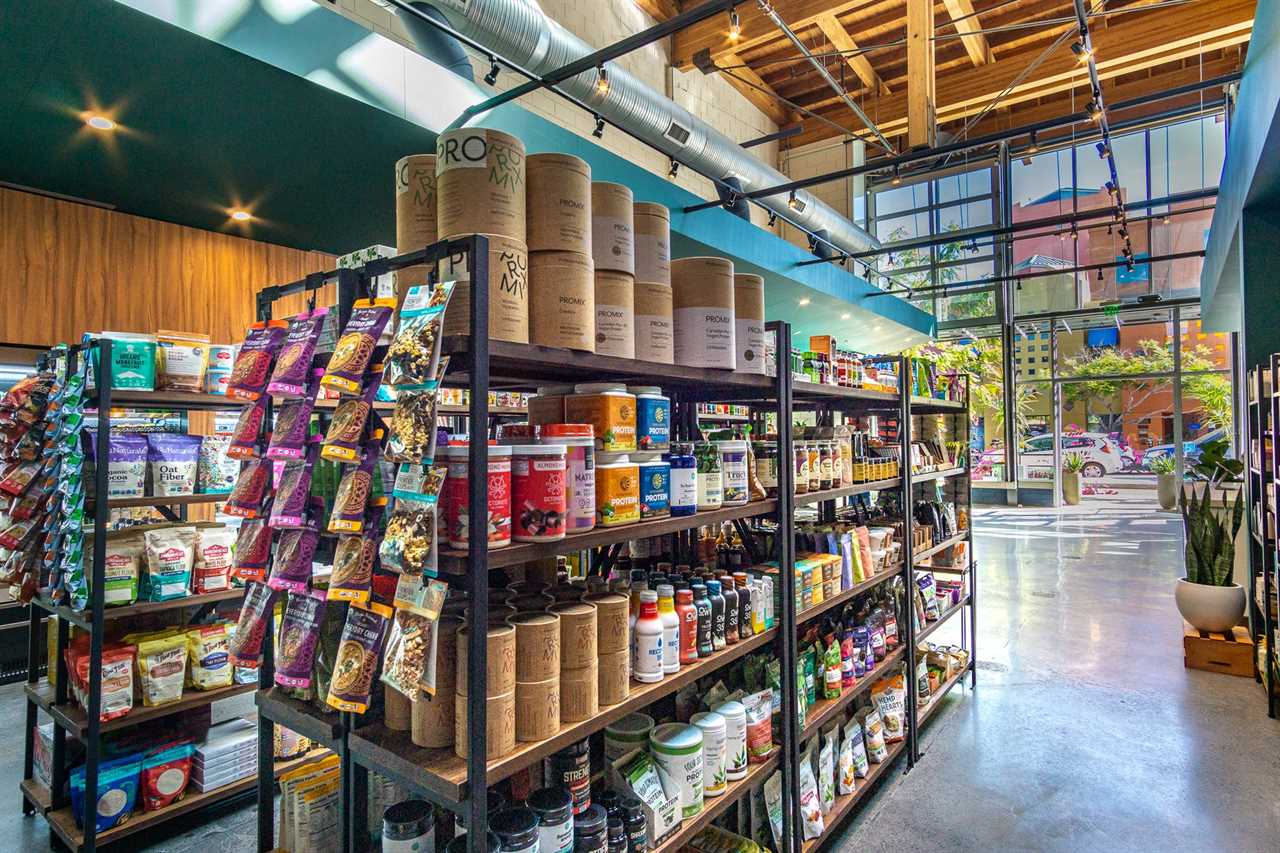
Food items from Chef Matthew Kenney's Liora restaurant.Courtesy of Liora
-
More vegan and alternative-meat products are being sought after by more people.
-
The year ahead will be no different. Vegan options are becoming more accessible and food tech is introducing new proteins.
-
These are the top trends for 2022: from vegan dairy to plant-based fine food.
As more people look for plant-based food and products, we are in the middle of a food evolution and a food revolution.
As vegan and related novel alternatives get better in taste, become more affordable, and have greater availability, a future of food that doesn't rely on animals and environmentally-destructive factory farming seems more attainable each year. This could be the best year to prove it, and 2022 may just be the best.
The plant-based boom is caused by a combination of many factors. My powerhouse investors backed emerging food tech startups. A changing dining scene that emphasizes more plant-based cuisines and less meat. There are meat doppelgängers that can be used to satisfy people who don't want or need to give up the foods they love. These are just a few.
Continue reading to discover the top trends in food-tech and plant-based technology this year.
More products
It sounds absurd to say that animal-free dairy is possible. Perfect Day, a food tech startup, and its growing network of brands and partners may just be about to usher in an animal-free dairy renaissance.
Perfect Day's animal-free dairy proteins are made from fermented milk protein, rather than traditional extraction from bovine milk. Smitten Ice Cream was the first to use Perfect Day's animal-free dairy in a commercial product in 2020. Perfect Day's brand Brave Robot followed suit shortly thereafter, selling pints at grocery stores and online.
There are many more. Natreve, a wellness brand, recently announced that its animal-free whey proteins powder will be on the market by 2022. Modern Kitchen also launched their animal-free cream cheese spread in September 2021. They have started selling it online.

Brave Robot animal-free dairy ice cream, which uses Perfect Day animal-free dairy proteins.Brave Robot
These animal-free dairy products are not "plant-based", as they contain identical dairy proteins to cow's milk. Perfect Day warns that although the proteins can be eaten vegan, those suffering from a milk allergy should not consume them. They advise that people with lactose intolerance or sensitivity should not eat them.
Perfect Day will continue to launch consumer products via an arm called The Urgent Company. Other brands may also license next-generation dairy ingredients. In 2022, we may see some of these companies through partnerships with restaurants.
Mycoprotiens are increasingly used to produce alternative meats
Although "Mycoptotien" may sound like hyper-techy, its foundations are built on a more than one billion year old organism: fungi. Mycoprotiens form when fungi are placed in a fermentation vessel -- similar to those used for fermenting beer -- and fermented using glucose and other nutrients.
This results in a protein dough with a meat-like texture. It can be used to make meat substitutes. Mycoproteins have been a staple ingredient in Quorn's vegan and vegetarian food products, such as its "chicken" nuggets.
Mycoproteins are also used by the Vegetarian Butcher, which is a brand that offers plant-based meat alternatives and was acquired in 2018 by Unilever. Mycoproteins are a great alternative to animal-meat production due to their high nutritional profile and low cost of production. Expect to see more plant-based brands using mycoproteins in their alt-meats.
We may also see mainstream consumer-packaged-goods juggernauts get into the mycoprotein game, either by snatching up plant-based mycoprotein startups or launching their own mycoprotein-based alt-meat brands. Mycoprotiens can be considered vegan or plant-based.
Cultivated beef in fact arriving on our plates
Cultivated meat was originally conceived by scientists as a way to produce meat without animal experimentation. However, the viability of cultivated meat has improved over the past few years.
We'll soon see new proteins such as fish, steak, and chicken as a result of the FDA and USDA approvals of cultivated meat. Some industry experts believe this could happen by mid-year 2022.

Eat Just's Good Meat cultivated chicken from Madame Fan in Singapore.Eat Just
Brands will begin to partner with selected food-service outlets and chefs who are experienced in the preparation of cell-based meat. Example: Eat Just's Good Meat cell-based meat brand, which sells its cultivated chicken in Singapore, recently announced that Jose Andres, a chef at Eat Just, has pledged to sell Good Meat cultivated poultry at one of his US restaurants after regulatory approval.
You won't find cultivated meat labeled as vegan or plant-based. There is currently some animal involvement and the meat's basis is made from animal cells.
More veg-centric menus
Restaurants might not make drastic changes to all vegetable-based menus. However, we can expect chefs and restaurants to de-emphasize meat and add and label vegan options to the menu.
These offerings will be more prominently used by restaurants to market their inclusive dining experience to customers.
Fine dining based on plants
When you hear the words "fine dining", what kind of food do your thoughts go? A perfectly cooked Kobe steak Perfectly seared Bluefin Tuna

A Sweet Potato Gnocchi dish at Liora, a Chef Matthew Kenney restaurant in Baltimore.Liora
The definition of luxury dining will change in 2022 as chefs put plants at the heart of the table. We're starting to see well-respected chefs embrace plant-based fine-dining.
School cafeterias are offering more healthy plant-food options
Schools are under increasing pressure to offer healthier food choices in their cafeterias, and more plant-based options for human and planet health.
School lunches have been dependent on animal products since the 1980s when there was a surplus in dairy and cattle. Private companies are strongly tied to the government's National School Lunch Program, which makes it difficult for them to replace legacy meat and dairy foods.
But 2022 could prove to be a landmark year for school meal reform. A bill is currently in Congress that would grant school districts a grant to expand plant-based options. There will be new offerings and programs that are both funded by private businesses and nonprofits.
Dedicated vegan markets - both brick and mortar and e-commerce
You'll find a section for vegan food in any market. It's becoming harder to find an all-vegan shopping experience in a local grocery store or market. But that's slowly changing.
Over the past few years, a host of all-plant-based ecommerce stores have appeared. In 2022, all plant-based neighborhood bodegas will be able to enjoy brick-and mortar.

XMarket's plant-based store in the Hillcrest neighborhood in San Diego.XMarket
PlantX, an e-commerce company that sells vegan food and goods, has begun to expand its local markets called XMarket. The company has many other locations in North America that are either currently open or planned to open soon, including the largest store in San Diego, California in November 2021.
Another, PLNT PWRD MRKT is a plant-based snack and goods store that recently opened in Montecito. It's the first all-vegan market on the California central Coast. You can expect to see more dedicated stores that are plant-based, with a focus in brand curation and community experiences.
Celebrity investment into vegan brands and other alt-proteins
Celebrities and their investment companies are not only headlines but also signal to the market where they put their money. Celebrities have been investing in plant-based and future food brands that align with their values and see opportunities in the market over the last few years.
Leonardo DiCaprio has made big bets on cultivated meat with investments in 2021 at Aleph Farms as well as Mosa Meat. He has previously invested in Beyond Meat, and Califia Farms plant-milk brand Califia Farms.
Sean Jay-Z Carter was an early investor of allergen-safe vegan cookies Partake Foods and Impossible Foods. He also invested in Simulate plant-based nuggets and Oatly. Drake invested in Daring Foods which is a plant-based chicken business. Crossroads, a renowned LA-vegan restaurant, was purchased by Travis Barker. Post Malone's venture company invested in Actual Veggies which is a whole-input veggie patty business.
This list is endless and will continue to grow.
Food tech and plant-based brands go public
In the last few years, there have been many IPOs of top plant-based brands.
Beyond Meat was a successful IPO in 2019, with a valuation of $1.5 billion. It went public just months later with a market capitalization of more than $12 billion. Oatly went public with a $10 billion valuation in 2021. Globally Local, a vegan fast-food chain, went public in the same year. It was listed on the Toronto Stock Exchange.
In the USA and Canada, expect to see vegan brands and food tech companies go public in 2022. (To find out which plant-based brands are already public, Vegpreneur has a list that tracks this activity. Be on the lookout for activity and formation of plant-based, alt-protein-focused SPACs.
 Make Money OnlineForexInvestingBitcoinVideosFinancePrivacy PolicyTerms And Conditions
Make Money OnlineForexInvestingBitcoinVideosFinancePrivacy PolicyTerms And Conditions
